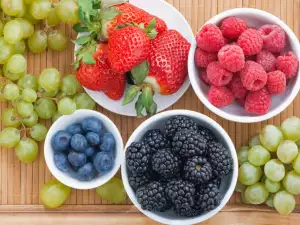Eating red meat 10 or more times a week can increase your risk of vision loss, a study reports. Excessive consumption of meat may lead to eye problems as we age.
Macular degeneration is the leading cause of severe vision loss in people aged 50 or older. The conditions or so-called risk factors which lead to vision loss in the center of the retina (macula) are age, family history and smoking.
The latter was the only known risk factor which one could remove in order to decrease the risk of blindness.
But an Australian study has found that people who consume excess amounts of red meat or more specifically sausages, are susceptible to developing macular degeneration.
Melbourne researchers observed the food habits and eye health of 5604 men and women for a period of 10 years.
They discovered that those who ate red meat 10 or more times a week had a 50% higher risk of macular degeneration than those who ate meat 4 or fewer times a week. Additionally, people who eat a lot of salami or sausages are at a high risk of this condition.
On the other hand, the study also revealed that eating chicken meat is healthy and can even protect against vision problems.
If you love meat and meat products, don't worry - just eat more chicken and beef. A series of other studies have shown that a diet rich in several nutrients, including vitamin C, vitamin E, lutein and zeaxanthin, selenium and zinc can help maintain your vision health.

It's important to note that besides for vision, eating greater amounts of red meat affects the overall health of the human body and life expectancy.
On the one hand, red meat is an excellent source of zinc, a nutrient that is crucial for healthy eyes. But at the same time, red meat and smoked red meat do to some degree contain chemical compounds called nitrosamines which are unhealthy.
Advice for optimal eye health:
A varied diet
Eating fish twice a week is linked to a 24-33% decreased risk of macular degeneration. A varied diet with a healthy mix of plant foods, rich in antioxidants, as well as proteins from fish, bird meat, and red meat in moderate quantities, are important for eye health.
Carrots
According to the American Optometric Association (AOA), orange colored vegetables are excellent for the eyes because they are abundant in beta-carotene, which is of prime significance for your health, but spinach and other dark leafy green vegetables are the healthiest foods for the eyes as a whole. They contain nutrients that are of key importance to eye health and cannot be obtained anywhere else.

Never exclude the following from your diet:
1. Lutein and zeaxanthin, contained in colorful fruits and vegetables such as broccoli, spinach, corn, green beans, peas, oranges, mandarins.
2. Essential fatty acids, found in oily fish such as tuna, salmon, herring.
3. Whole-grain foods.
4. Chicken and eggs.
5. Vitamin C, found in fruits and vegetables, including oranges, grapefruits, strawberries, papaya, green peppers and tomatoes.
6. Vitamin E, found in vegetable oils such as saffron or corn oil, almonds, walnuts, sweet potatoes and sunflower seeds.
7. Zinc, found in extra tender red meat, bird meat, liver, mussels, milk, beans and whole grain foods.




















Comments